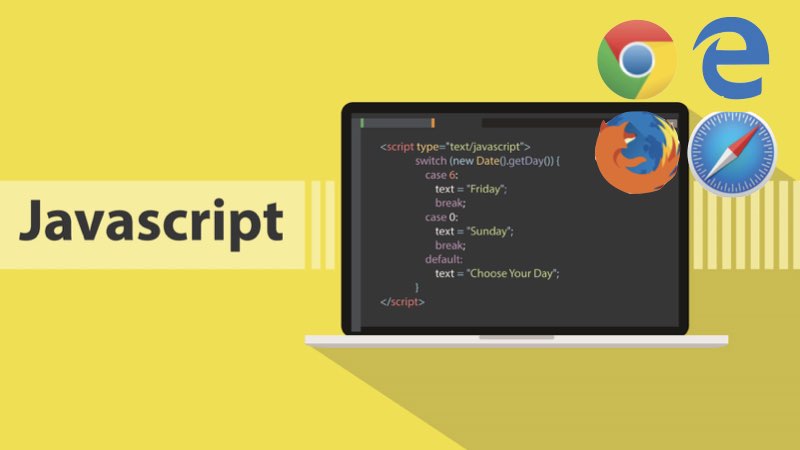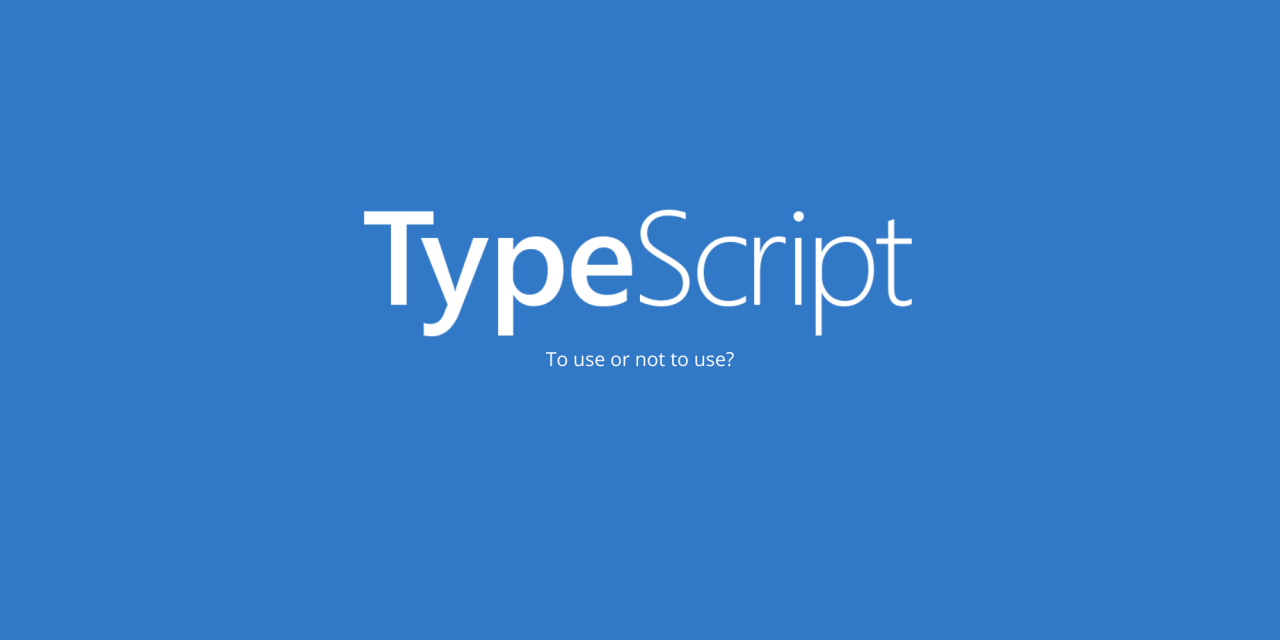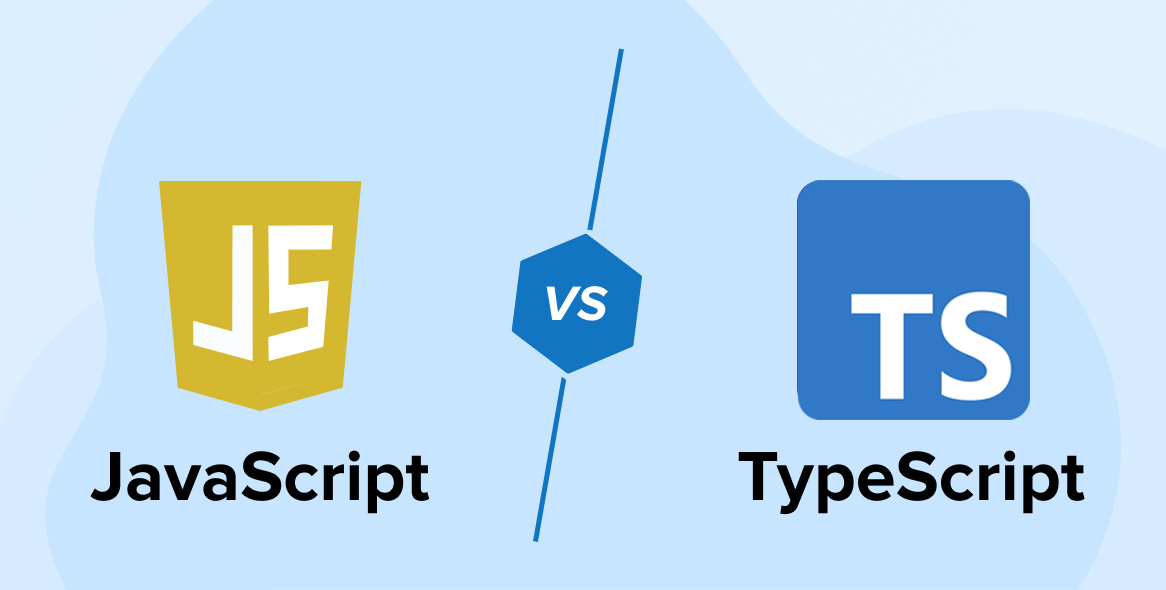JavaScript vs TypeScript: The Complete Comparision


When gearing up for a new project, you might compare JavaScript vs TypeScript or ponder “Is TypeScript better than JavaScript?”, especially in web development projects. While they’re often mentioned together and used by many companies, it’s crucial to understand that they are different. JavaScript and TypeScript each have their own set of use cases and capabilities.
This blog post will dive into what sets TypeScript apart from JavaScript. Understanding their advantages and limitations will help you make a well-informed decision about which language is the right fit for your project.
JavaScript is a high-level, dynamic, untyped, and interpreted programming language. It is known for its role in web development, where it is used alongside HTML and CSS to create interactive web pages. JavaScript enables developers to implement complex features on web pages, such as interactive forms and animations, and respond to user actions.

JavaScript
Initially only used in web browsers, JavaScript has become increasingly versatile, now used in server-side programming (Node.js), mobile app development, and even desktop application development. C influences its syntax but has a unique approach to object-oriented programming, using prototype-based rather than classical inheritance.
TypeScript, a programming language that is open-source, has been developed and is continuously maintained by Microsoft. It is a superset of JavaScript, adding additional features and capabilities to the JavaScript language. TypeScript introduces static typing to JavaScript, allowing developers to specify types for variables, functions, and other elements in their code. This feature enhances code quality and readability, making it easier to maintain and debug.

TypeScript
TypeScript is compiled into plain JavaScript, ensuring compatibility with any browser, host, or operating system that supports JavaScript. This compilation process checks for errors before running the code, leading to more robust and reliable applications. TypeScript is favored in large-scale application development because it provides a more structured and scalable codebase.
Learn more about JavaScript with our articles:
Let’s compare JavaScript vs TypeScript performance and their overall differences.
| Feature | JavaScript | TypeScript |
| Typing System | Dynamically typed: Types are checked at runtime. | Statically typed: Type verification occurs during the compilation process. |
| Learning Curve | Generally easier for beginners due to its simplicity and wide usage. | Steeper, especially for those unfamiliar with static typing or advanced OOP concepts. |
| Execution | Can be run directly in browsers and Node.js environments. | Requires compilation to JavaScript to be executed in browsers or Node.js. |
| Error Detection | Errors are often found at runtime. | Errors are more likely to be caught during compilation, reducing runtime errors. |
| Community and Ecosystem | Larger community with extensive resources and libraries. | Growing community, but smaller compared to JavaScript. Rich ecosystem due to its compatibility with JavaScript libraries. |
| Use Cases | Suitable for various types of projects, especially where quick prototyping is needed. | Better suited for large-scale applications where maintainability and code robustness are crucial. |
| Tooling Support | Good tooling with various IDEs and text editors. | Advanced tooling capabilities due to static typing, like better autocompletion and refactoring tools. |
| Syntax | Standard JavaScript syntax | Similar to JavaScript, with additional features |
| Backward Compatibility | Cannot run TypeScript in JavaScript files | Fully compatible with JavaScript; any JavaScript code is also valid TypeScript code. |
| Popularity in Development | Widely used in both frontend and backend (Node.js) development. | Increasingly popular in enterprise and large-scale applications and frontend development with frameworks like Angular. |
Comparison Between TypeScript vs JavaScript Pros and Cons
| Language | Pros | Cons |
| JavaScript | Widely Used: JavaScript is the most popular language for web development, used universally in web browsers.
Flexibility: Highly flexible in writing code can be both an advantage and a disadvantage. Large Community: Has a massive community, extensive libraries, frameworks, and resources. Easy to Learn: Relatively easier for beginners to pick up and start developing. Versatile: Used for both client-side and server-side (Node.js) development. |
Dynamic Typing: Prone to runtime errors due to lack of type enforcement.
No Compile-Time Error Checking: Errors are typically found at runtime, which can be less efficient.
Security Issues: Being client-side, it can be exposed to various security vulnerabilities. |
| TypeScript | Static Typing: Offers static typing, which can catch errors at compile time, leading to fewer runtime errors.
Better Tooling: Enhanced code quality and developer experience with features like autocompletion and refactoring. Robustness: More suitable for large-scale applications due to its robustness and features like interfaces and generics. Superset of JavaScript: Includes all JavaScript features, so any valid JavaScript code is also valid TypeScript code. Improved Maintainability: Makes code more readable and maintainable, which is crucial for large codebases. |
Learning Curve: Has a steeper learning curve, especially for developers unfamiliar with static typing.
Requires Compilation: Needs to be compiled into JavaScript, which adds an extra step in the development process.
Less Flexibility: More rigid coding structure than JavaScript, which can be a con for some use cases. |
| When to Use JavaScript | Description |
| Web Development (Frontend and Backend) | Given its essential role in creating interactive web pages, JavaScript maintains a strong position in the JavaScript vs TypeScript popularity debate, being widely used in both frontend and backend development with Node.js |
| Rapid Prototyping | Ideal for quickly developing prototypes and MVPs (Minimum Viable Products) due to its dynamic nature and ease of use. |
| Small to Medium-Sized Projects | Well-suited for projects where the overhead of types and strict structure is not necessary. |
| Cross-Platform Mobile App Development | Frameworks like React Native enable JavaScript for developing cross-platform mobile applications. |
| Real-Time Applications | Great for applications like chat, live streaming, and online gaming, leveraging technologies like WebSockets and Node.js. |
| Serverless Computing | Commonly used in serverless architectures with Node.js, where functions are hosted on cloud platforms and executed on demand. |
| When to Use TypeScript | Description |
| Large-Scale Enterprise Applications | TypeScript’s static typing and advanced object-oriented features are ideal for complex applications where maintainability and scalability are key. |
| Projects with Large Development Teams | The type system and compile-time error checking in TypeScript enhance code quality and collaboration in multi-developer projects. |
| Angular Applications | As the primary language for Angular, TypeScript is the preferred choice for developers building dynamic web applications with this framework. |
| Applications Requiring Robust Type Safety | Ideal for projects needing strong typing, like financial systems, complex business logic, and large-scale data processing. |
| Refactoring and Migrating Legacy Codebases | TypeScript’s incremental type annotations aid in refactoring and scaling existing JavaScript codebases. |
| Development of Libraries and Frameworks | TypeScript’s clear type definitions and interfaces make it a popular choice for developing libraries and frameworks. |
You might be asking: “Is TypeScript better than JavaScript?”. The choice largely depends on the scale, complexity, and specific requirements of your project, as well as your team’s expertise and long-term maintenance plans.

JavaScript vs TypeScript
In conclusion, the choice between JavaScript vs TypeScript depends on your project’s specific needs. Each language has strengths, and the selection varies based on project size, complexity, and long-term goals.
If you’re still deciding which one to choose for your next project, TECHVIFY is here to help. Our team is equipped to assist you in making your selection that best fits your project’s requirements. Contact TECHVIFY for expert advice and tailored services that align with your development needs.


Table of ContentsI. A Brief Looking at JavaScript vs TypeScript Definitions1. What is JavaScript?2. What is TypeScript?II. JavaScript vs TypeScript DifferencesIII. When to Use TypeScript vs JavaScript1. When to Use JavaScript2. When to Use TypeScriptTypeScript vs JavaScript Which is BetterTypeScript is better atJavaScript is better atConclusion In the fast-evolving world of online dating, understanding the cost to build a dating app is vital for anyone looking to break into the market. From the initial concept to the final launch, the journey requires careful planning around feature selection, platform compatibility, and user security—each of which plays a critical role in shaping…
22 October, 2024

Table of ContentsI. A Brief Looking at JavaScript vs TypeScript Definitions1. What is JavaScript?2. What is TypeScript?II. JavaScript vs TypeScript DifferencesIII. When to Use TypeScript vs JavaScript1. When to Use JavaScript2. When to Use TypeScriptTypeScript vs JavaScript Which is BetterTypeScript is better atJavaScript is better atConclusion You’ve started a business, and now you need a website. But no one on your team knows much about coding, and hiring a full-time web developer just isn’t in the cards right now. Sound familiar? If so, outsourcing your web design might be the perfect solution. Whether you’re a startup building your online presence…
21 October, 2024

Table of ContentsI. A Brief Looking at JavaScript vs TypeScript Definitions1. What is JavaScript?2. What is TypeScript?II. JavaScript vs TypeScript DifferencesIII. When to Use TypeScript vs JavaScript1. When to Use JavaScript2. When to Use TypeScriptTypeScript vs JavaScript Which is BetterTypeScript is better atJavaScript is better atConclusion With much of our communication happening online, it’s no surprise that the dating world has also shifted in the same direction. In 2021, 49 million people in the U.S. alone turned to online dating services—whether to find a serious partner or just enjoy a fun date. The trend became even more pronounced in 2020,…
18 October, 2024


Thank you for your interest in TECHVIFY Software.
Speed-up your projects with high skilled software engineers and developers.
By clicking the Submit button, I confirm that I have read and agree to our Privacy Policy